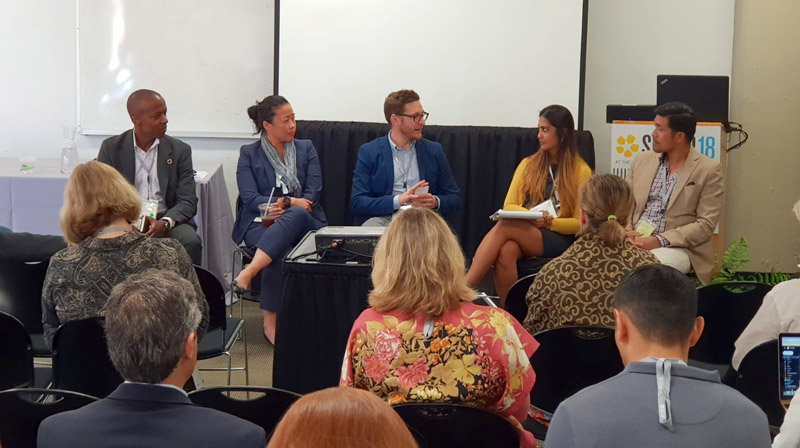How can you help businesses measure their carbon footprint? How do you generate electricity from excess heat? How can you create funding models that are uniquely geared towards companies with a tech for good mindset?
These are the types of questions Greg FitzGerald loves solving—questions he encountered in his first start-up, at Shad in 2002, and through his work supporting venture growth.
Through his firm, Venture Stem, Greg helps institutions like banks, universities, and accelerators create funding models for entrepreneurs pioneering sustainable development and cleantech.
“For a lot of these companies, they are thinking from day one what their impact is. And it’s diverse. Sometimes it’s about the number of kilowatt-hours that they can produce. Sometimes it’s about the number of people whose lives they can improve,” says Greg. “But they have a common thread, which is that they hit a limit on the extent that they can grow because they can’t go to regular banks for help. These are companies that are not profitable, so somebody needs to step up.”
Greg worked with Future of Fish, a non-profit organization with a mission to end overfishing, to bring more capital to artisanal fisheries.

“Artisanal fishers are not wealthy. They don’t own giant trading ships that explore the ocean. A lot of the certification schemes that have sought to create a sustainable fishing industry are not really oriented toward artisanal fisheries.”
To solve this problem, Greg developed a method to make a fishery traceable—a way to look at the supply chain as a whole to identify areas worthy of investment for more sustainable and business savvy practices.
“If we want to solve the world’s biggest problems, we have to figure out how to tap that to build a business case.”
Greg’s passion for systems design grew while studying Mechatronics Engineering at the University of Waterloo.
“I came from a small town and didn’t have exposure to a lot of careers, so I learned a little bit about the field of engineering at Shad.”
He remembers a workshop where they built paper-based Turing machines.
“It was a very complex problem and I always get really drawn in by those unsolvable, complex problems.”
While completing his MBA at the University of Oxford, Greg met a friend who would later become a co-founder of his first venture, Carbon Analytics.
“We had an idea that every company should be able to very easily measure their carbon footprint. There’s no reason that that’s not a thing today. The data exists, it’s easy to write software.”
Before this formal venture, Greg remembers developing a business idea and pitch at Shad, also with a focus on environmental sustainability. His group’s idea was to extract waste heat from industrial pipes and turn it into electricity.
“It’s crazy, Shad was only a one-month thing, but in that time, we were able to come up with this concept, try to validate it a little bit, and try to prototype.”
Above his work at ventureSTEM, Greg also teaches courses on entrepreneurship, innovation, and sustainability at the University of British Columbia.
And he has advice for any student who wants to make a change through their career.
“Studying environmental sciences is not your only way to make an impact on the environment…,” says Greg. “People should absolutely keep that as a thread throughout their schooling and their career and not feel in anyway limited because there are so many angles. It’s a multifaceted problem, there’s no silver bullet solutions. Everybody needs to lend a hand.”